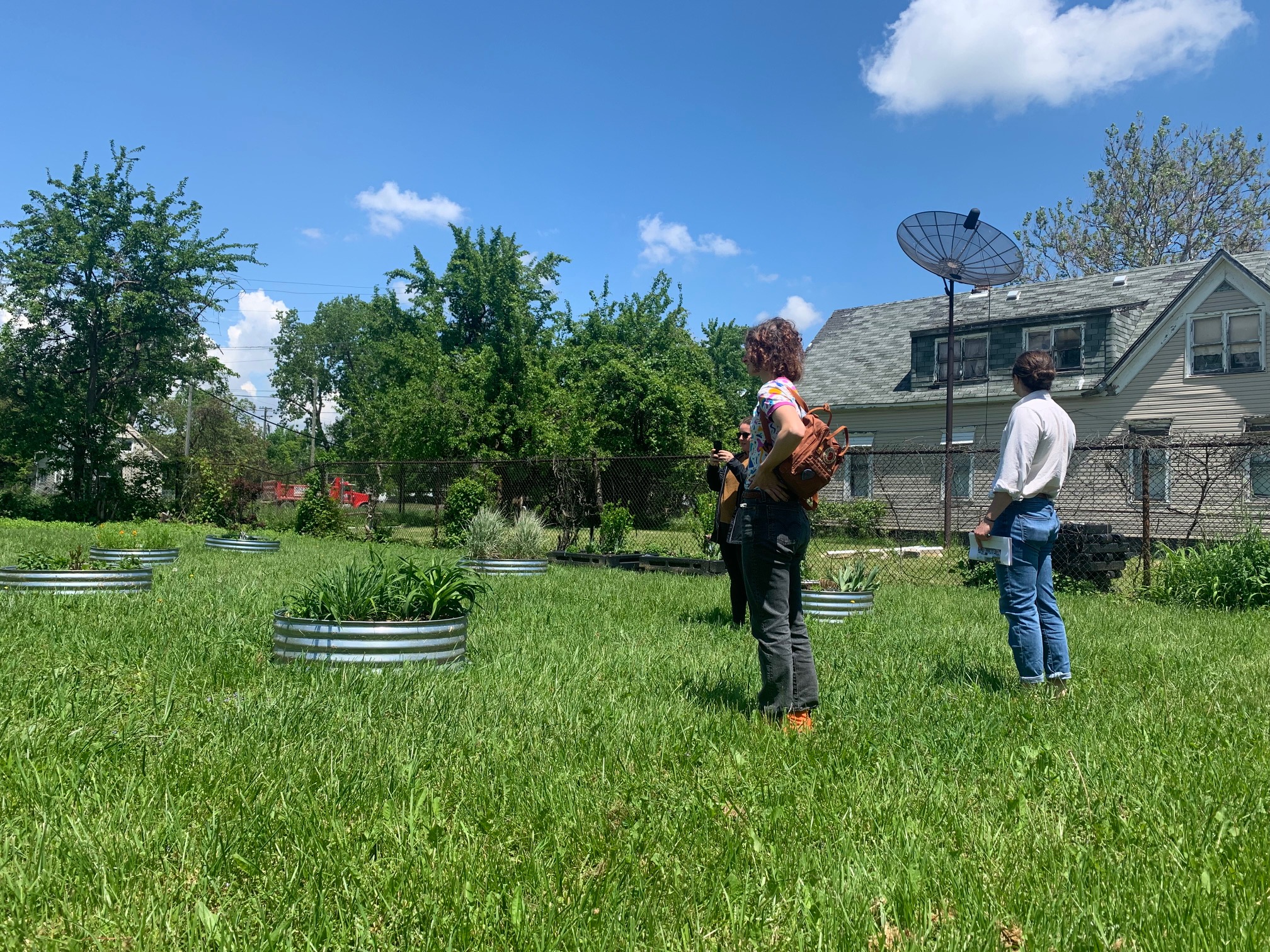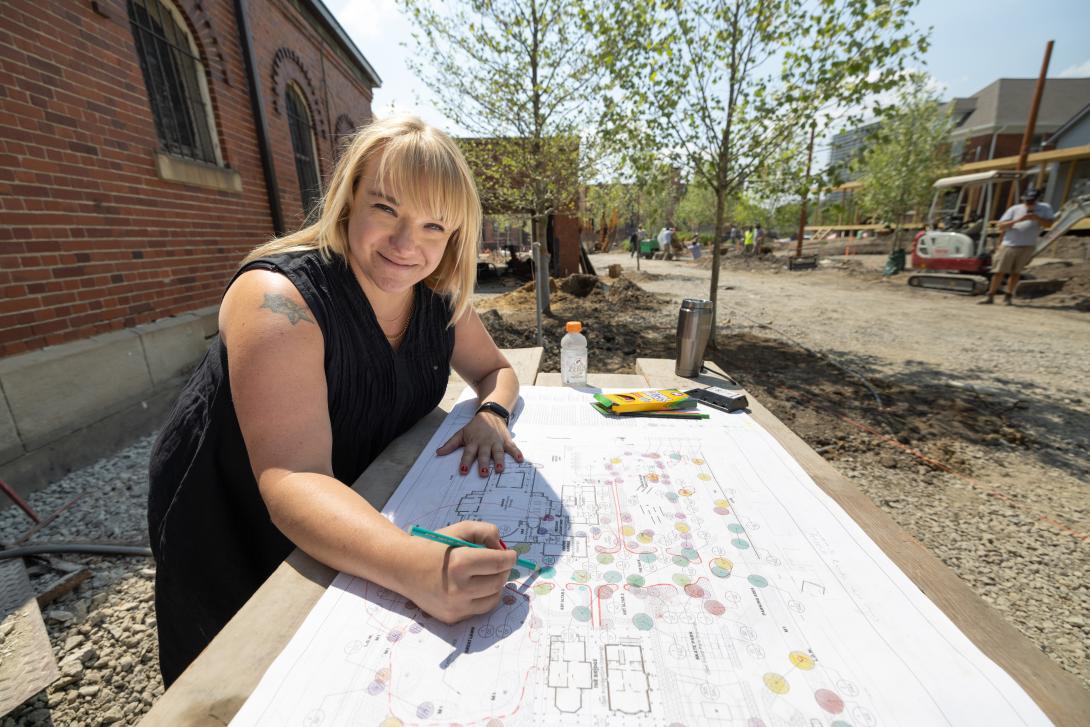Nov. 15, 2023
After coming to the University of Michigan in 2020 to teach, Lisa DuRussel quickly found a community and a home with the Ginsberg Center. A landscape architect by trade, DuRussel, Assistant Professor of Practice in U-M’s School for Environment & Sustainability, teaches courses and seminars that cover topics including ecological design, planting design and community engagement.
DuRussel reached out to the Ginsberg team in 2021 for help connecting with community partners in Detroit as she created a graduate-level, community-engaged course. The course, Engagement for Impact, explores engagement through three lenses: why engage, how to engage and let’s engage. The course is a collaboration with the U-M Museum of Natural History that focuses on science communication, and it culminates in a service-learning experience that builds skills and context for impactful community engagement.
Amanda Healy, Assistant Director for University-Community Partnerships, was able to connect DuRussel with Amanda Paige at the Bailey Park Neighborhood Development Corporation, thus beginning a partnership that continues to today. The Bailey Park Neighborhood Development Corporation (BPNDC) is a nonprofit organization serving the McDougall-Hunt area of Detroit that aims to revitalize the community.
“[Paige] was really interested in exploring a number of different ideas, and one of those ideas was looking at soils and thinking about how to decolonize lawns, or replacing lawns with ecologically beneficial native plants,” DuRussel said.
The partnership between DuRussel and BPNDC led to efforts to educate the community on soils and their importance, including a U-M student-led initiative to teach children who visit Bailey Park about soils. DuRussel and her students also met with local seniors to take oral histories of their experiences living in the area and how the built environment has changed over time.

DuRussel's students working at Bailey Park, Detroit
“What’s lovely is that this relationship has not just grown, but it’s also spurred other partnerships in the community,” DuRussel said. “We’re now collaborating with Detroit Vacant Land Community Development Corporation on an initiative called Detroit Land Lab. The team recently led a workshop with funding from the Office of the Provost through their Engage Detroit program. This has really driven more work in the land acquisition space, and that’s awesome.
“One of the things I’ve been able to do, both in my practice and with students, is go into the city to work with nonprofits and really think about how to put land back into the hands of the people who have been living in Detroit for generations,” she said.
In a more recent collaboration, DuRussel has begun working with Sidewalk Detroit to help them think about how the city of Detroit is managing its wildlands. This partnership involves student capstone projects that she will oversee over the next year and a half.
DuRussel is also a part of Ginsberg’s Community of Practice, where she discusses power and partnerships with community-engaged faculty and staff from across the University, facilitated by Ginsberg staff. She said that she enjoys having a forum with like-minded people to talk about why community-engaged work is so crucial.
As a part of her courses and teaching philosophy, DuRussel stresses the importance of building trust with the community. She is adamant about only making promises that can be kept and being as transparent as possible with partners and stakeholders.
“A lot of our work is about building relationships,” she said. “I’ve spent three years working on these partnerships so that my students can come into the community under my wing and do work that our partners will use. I’ve found that I really need Ginsberg’s assistance to help me navigate that.”
When asked why her body of work is important, DuRussel said that the land touches everything, and being good stewards of our land is of paramount importance to our longevity.
“I think about how we are only going to inspire and empower people to be stewards of their own environment if they understand it and understand its importance to their well-being and everyday life,” she said. “When it comes to civic engagement, we see so many decisions being made from a top-down policy level. But unless community members are active in those conversations, those policies are less likely to stick. That’s why I think working in this grassroots way is so effective.”

